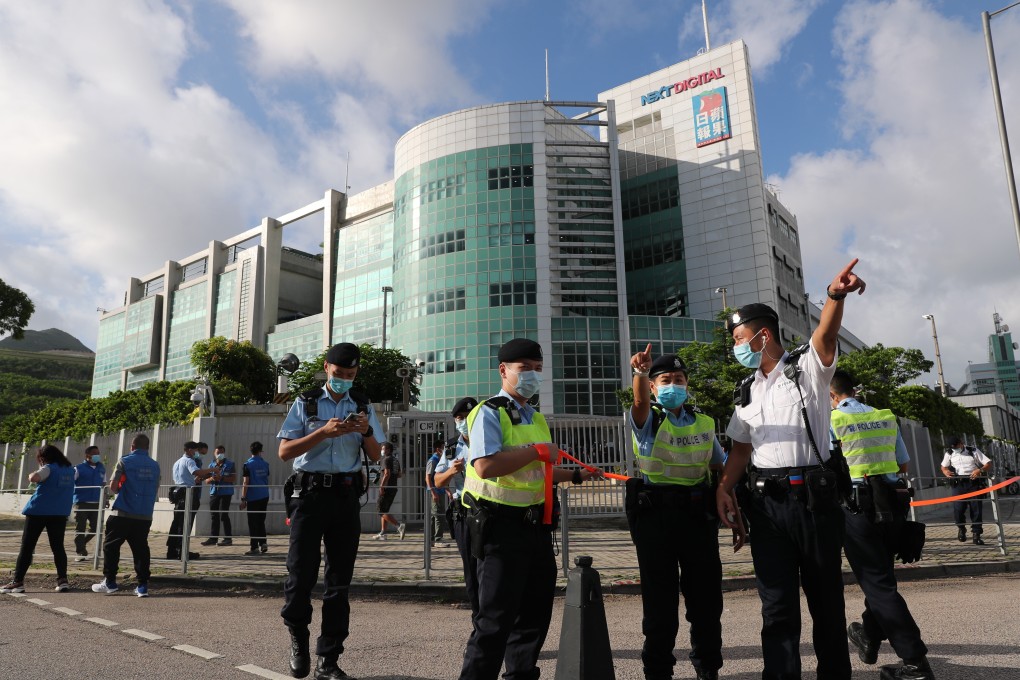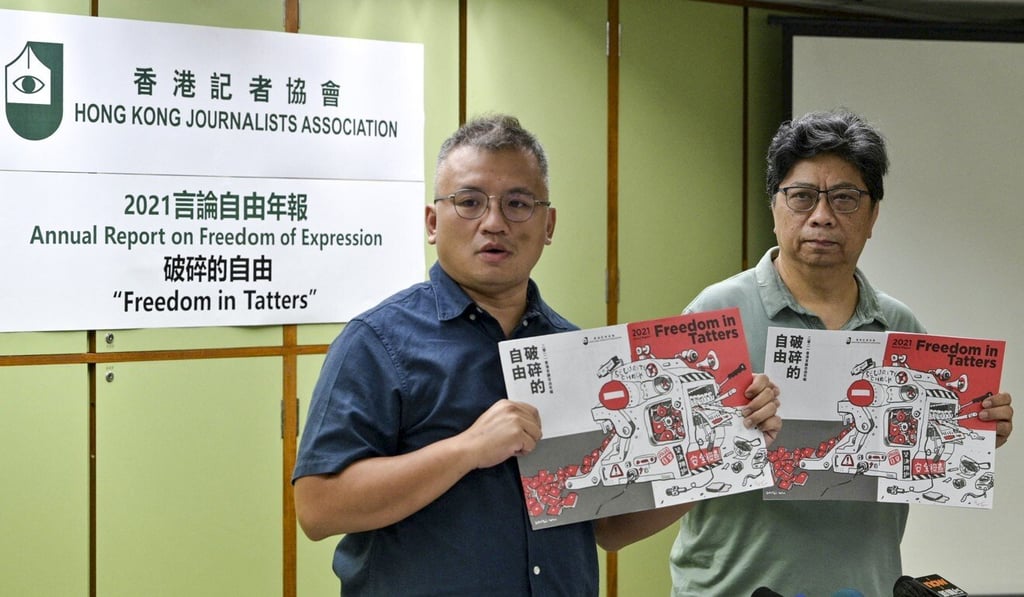Hong Kong press group wants Beijing to rethink national security law after year of ‘unprecedented threats’
- Hong Kong Journalists Association says media has faced year of ‘suppression’ and calls on officials to loosen grip on industry
- In annual report, group cites Apple Daily crackdown and calls on government to reconsider fake news law

The Hong Kong Journalists Association released its 2021 annual report on Thursday and said local media had faced “unprecedented threats” in the past 12 months amid what it called increasing “suppression” from the authorities.
Coupled with the planned fake news law, which could put journalists at greater risk and lead to “self-censorship”, it feared this was the start of a comprehensive clampdown on local media in the name of national security.
“After the closure of Apple Daily, there have been cases where some online outlets ceased operation while others sought to remove some previous reports or commentaries. This clearly shows that press freedom has been shrinking,” said Chris Yeung Kin-hing, the association’s immediate past chairman and chief editor of the annual report.
